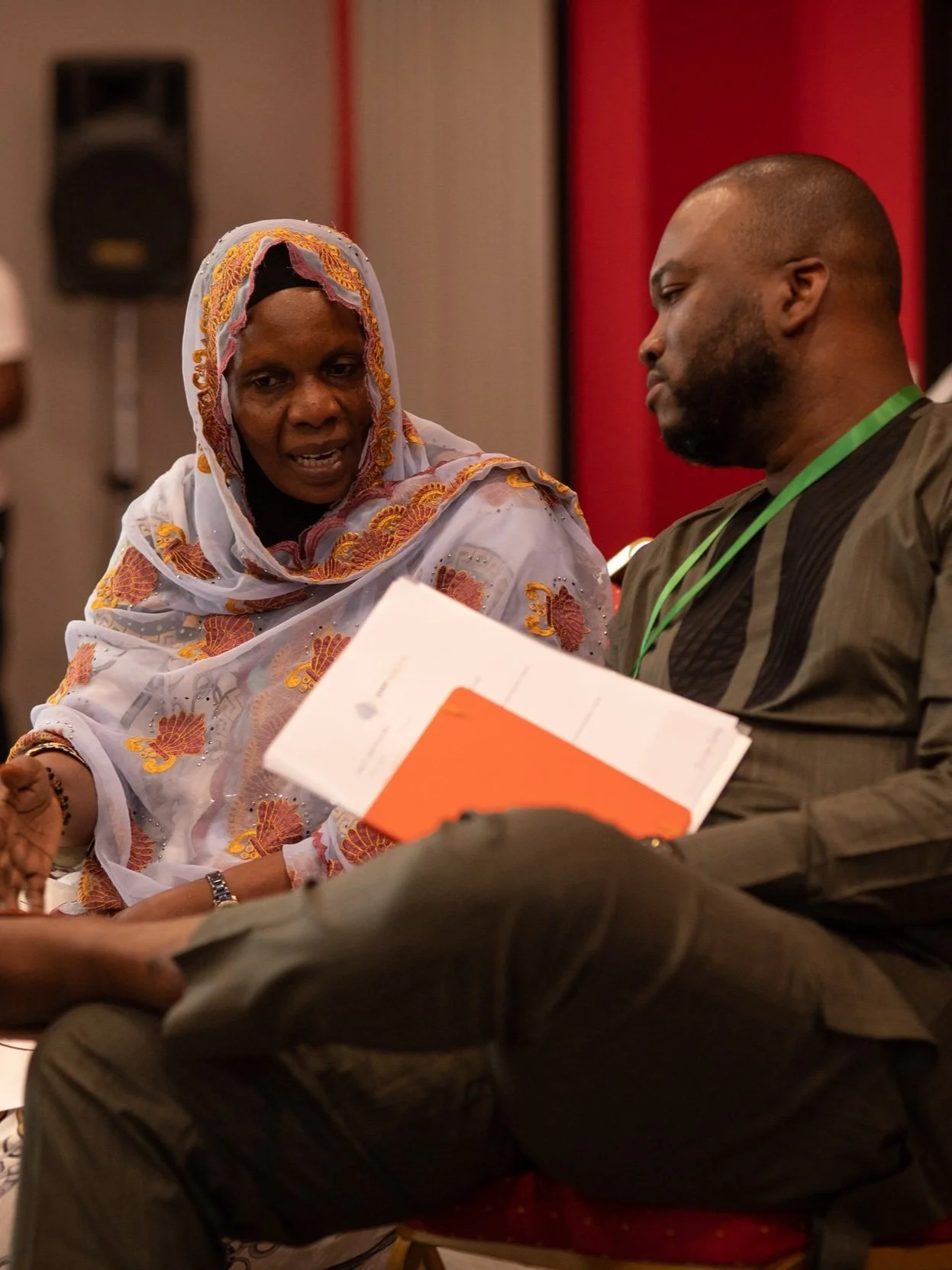Strengthening community health in Mali
Community health workers (CHWs) are essential to the delivery of comprehensive healthcare services. They help manage maternal and child health, facilitate vaccination campaigns, and manage chronic diseases. Their local knowledge and direct involvement bridge the gap between health systems and communities, increasing the overall effectiveness of a country’s national health strategies.
Mali, despite having a long-standing community health system, has struggled with implementation challenges. “Although Mali has had a community health system in place for some time, implementing activities remained a real challenge,” says Dr Youssouf Coulibaly, Director of Mali’s Sub-Directorate of Health Establishments and Regulation (SDESR). “Thanks to Amp Health’s interventions, we were able to expand what the Management Partner called ‘our sphere of influence’ and put in place a key process that ensures all stakeholders understand their role in implementing our community health strategy.”
Dr Youssouf Coulibaly, Director of Mali’s SDESR, with Amp Health’s Director of Country Support, Rihlat Said Mohamed.
Between June 2022 and May 2024, Amp Health paratnered with the SDESR to improve community health in Mali, achieving significant progress. During this time, the number of CHWs increased by 55%, from 3 303 to 5 123, with all newly recruited CHWs trained by the SDESR team. In addition, community health tools were fully digitised, improving efficiency and accessibility.
Enhancing leadership, coordination, and visibility
An Amp Health Management Partner (MP), Moussa Diakité, was embedded within the General Directorate of Health and Public Hygiene. He provided hands-on guidance to the SDESR while Amp’s Learning team curated custom learning journeys, helping drive meaningful improvements in coordination, accountability, and strategic planning.
With Amp Health’s support, the SDESR transformed its approach. A Community Health Steering Committee, chaired by the Secretary General of the Ministry of Health, now meets regularly to define national community health priorities. Meanwhile, a Community Health Technical Committee fosters collaboration among key stakeholders, ensuring alignment and resource sharing.
To improve transparency and accountability, a standardised reporting template was introduced, enhancing biannual progress meetings and streamlining decision-making. These changes reinforced the SDESR’s authority in the health sector, ensuring that no partner can initiate community health-related activities in Mali without first aligning with the SDESR team.
This shift prevents fragmentation and ensures that all interventions contribute to national priorities. “Some departments have expressed surprise, asking how we managed to obtain such detailed information from partners who they thought wouldn't share it,” Dr Coulibaly noted.
Scaling leadership practices across the Ministry
Recognising the value of Amp’s approach, Dr Coulibaly and his team ensured that other parts of the Ministry benefited as well. From the first Amp-led training workshop, they saw the need to involve other sub-directorates of the General Directorate of Health.
With each subsequent workshop, participation expanded. By the third workshop, directors of all sub-directorates, their focal points, and SDESR staff participated in a dedication leadership training session.
The impact was immediate.
“I remember the Deputy Director General coming to me the very next day saying, ‘For any decision I make around the delegation of tasks, I will make it based on skills and motivation principles,’” Dr Coulibaly recalled. “This showed me the training had already had a big impact, especially on the Deputy General Director who participated in the workshop and advised that it should become a habit.”
This practice is now institutionalised, with deputy directors and their teams participating in every workshop. In addition, each session concludes with an action plan, requiring sub-directorates to implement at least two key actions before the next workshop, thereby fostering continuous improvement across the ministry.
A legacy for Mali’s SDESR team
These improvements have already begun shaping Mali’s health landscape. On 25 and 26 July 2024, Mali held its second annual National Days of Essential Community Care campaign, bringing together community health stakeholders from civil society organisations, technical and financial partners, and CHWs to senior government officials including the Minister of Territorial Administration and Decentralisation and the Minister of Health and Social Development.
At the event, Amp Health’s contribution to the community health sector in Mali was highlighted. Our MP, Moussa, received a certificate of recognition from the Minister of Health and Social Development, calling attention to Amp’s efforts to improve the management and delivery of essential community health services in Mali.
During the event, Moussa also moderated key discussion panels on topics like ‘Essential Healthcare in the Context of Conflict’ and ‘Institutionalising Community Health Strategy’. These discussions generated rich exchanges and underscored the importance of effective leadership and strategic planning in overcoming challenges.
We are delighted to witness the SDESR team’s ongoing success in the Transition Phase, in which we continue to provide ongoing remote support, and are enthused that they are utilising the skills strengthened in our partnership to execute ongoing health campaigns. By instilling strong leadership practices and structured coordination mechanisms, Amp Health’s collaboration with Mali’s Ministry of Health has laid the foundation for sustained impact.



